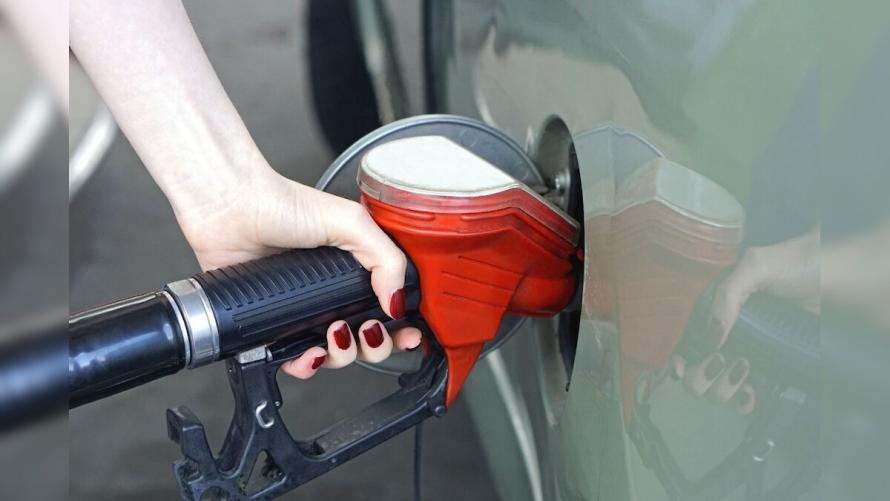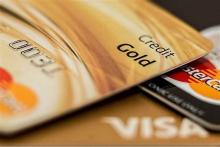Fuel Surcharge Waivers on Cards: How They Benefit You

Understanding How Fuel Surcharge Waivers Work on Credit Cards
In today’s world, every penny counts, especially when you're constantly on the go. Fuel is one of those necessary expenses that always seems to eat away at your budget. Fortunately, some credit cards offer fuel surcharge waivers, which can be a game-changer for frequent travelers or anyone looking to save money at the pump. But how do these fuel surcharge waivers work, and are they really worth considering? Let’s take a closer look.
What Is a Fuel Surcharge?
Before diving into fuel surcharge waivers, it's important to understand what a fuel surcharge is. A fuel surcharge is an additional fee added to your fuel purchase, often by the credit card issuer or the merchant. This fee is meant to offset the volatility in fuel prices, especially when prices surge unexpectedly. While not all credit cards impose these fees, some do, and they can add a significant amount to your total cost at the pump.
Typically, fuel surcharges range from 1% to 5% of the fuel purchase price. While it may seem like a small amount, if you fill up your tank regularly, these surcharges can quickly add up.
What Is a Fuel Surcharge Waiver?
A fuel surcharge waiver is a benefit offered by certain credit cards, which essentially eliminates or reduces the surcharge you’d typically incur when purchasing fuel. This means that when you use your credit card at a participating gas station, the surcharge fee is waived, resulting in a lower overall cost for fuel.
Some credit cards provide a blanket waiver for all fuel purchases, while others may only waive the surcharge at specific gas stations or under certain conditions. It's important to read the fine print of your credit card agreement to fully understand the terms of the waiver.
How Do Fuel Surcharge Waivers Work?
The mechanics of a fuel surcharge waiver can vary by issuer and credit card. Here's a breakdown of how they typically work:
- Eligibility for the Waiver: Not all credit cards offer fuel surcharge waivers, so it's important to know whether your card provides this benefit. Cards designed for travelers, business owners, or those who frequently drive often include this benefit. Popular cards in the travel rewards space, such as those affiliated with airlines or hotel chains, may offer this feature to attract loyal customers. The waiver applies only to transactions within a specified range (e.g., ₹400 to ₹5,000) for some cards.
- Specific Gas Stations: Some credit cards only waive fuel surcharges at particular gas stations. This is common with credit cards that have partnerships with specific fuel brands. For example, a credit card may offer a waiver at Chevron, BP, or Shell gas stations, but not at others.
- Card Type: Some banks offer fuel surcharge waivers only on specific credit card variants.
- Waiver Limit Per Month: Some credit cards may impose conditions, such as requiring a minimum fuel purchase to qualify for the surcharge waiver. For example, you may need to spend ₹400 to ₹5,000 or more on fuel for the surcharge to be waived.
- Automatic Waivers: In some cases, the waiver is applied automatically without any action on your part, as long as you use the correct credit card at the pump. For others, you may need to manually enter a code or request the waiver at the time of purchase.
- Rewards Points: In some cases, instead of waiving the surcharge, your credit card issuer may reward you with points or cashback for fuel purchases. These rewards may counterbalance the surcharge, making it feel as though the surcharge is waived in the long run.
Types of Credit Cards Offering Fuel Surcharge Waivers
There are several types of credit cards that offer fuel surcharge waivers or rewards that offset fuel costs. Here are some examples:
- Travel Rewards Cards: Many travel rewards credit cards partner with specific gas stations or offer fuel discounts, which can be seen as a form of surcharge waiver. These cards often provide additional benefits like airport lounge access, hotel discounts, or air miles that can make your travel more cost-effective.
- Cashback Cards: Some cashback credit cards offer increased cashback on fuel purchases, which helps offset the surcharge. These cards usually provide a percentage of your fuel expenses back as a reward.
- Business Credit Cards: Business credit cards, especially those used by companies with a lot of travel, frequently offer fuel surcharge waivers as part of their broader business expense management offerings.
- Co-Branded Cards: Cards affiliated with specific gas station chains (e.g., ExxonMobil, Shell, or Chevron) often offer the most generous fuel surcharge waivers. These cards tend to provide the best rewards and discounts when used at specific gas stations.
Benefits of Fuel Surcharge Waivers
The main benefit of a fuel surcharge waiver is the potential for significant savings, especially if you fill up frequently. If you drive a lot, this benefit can reduce your fuel costs by eliminating or minimizing additional fees. Other benefits include:
- Convenience: You don't have to worry about calculating surcharges at the pump, as your credit card takes care of it automatically.
- Enhanced Rewards: Some cards provide rewards, points, or cashback on fuel purchases in addition to waiving the surcharge, making it a win-win situation.
- Travel Perks: For those who frequently travel, many travel-focused cards provide surcharge waivers along with other travel-related perks, making them a great choice for road warriors.
- No Extra Charges on Frequent Refueling: For people who refuel frequently, surcharge waivers ensure they don’t incur unnecessary charges, helping them manage their budget better.
- Hassle-Free Transactions: You don’t have to worry about the hidden costs when paying for fuel using your credit card, as the waiver takes care of it automatically.
Things to Keep in Mind
While a fuel surcharge waiver can be helpful, there are a few things to keep in mind:
- Annual Fees: Some of the credit cards that offer fuel surcharge waivers come with hefty annual fees. It’s important to weigh the value of the waiver against the card’s annual fee to ensure you’re getting a good deal.
- Limited Gas Stations: Waivers may only apply to certain gas stations, so it’s important to check whether your preferred fueling stations are included in the program.
- Reward Structures: Sometimes, the rewards structure on these cards may favor specific categories like dining or travel. Make sure that fuel purchases offer competitive rewards or cashbacks that make the surcharge waiver worth your while.
- Alternative Fuel Surcharge Reductions: While waivers are nice, other methods to reduce fuel costs—such as using discount programs at certain gas stations or optimizing your driving habits—can also complement your strategy.
Final Thoughts
Fuel surcharge waivers are an excellent perk for those who drive frequently or need to manage travel expenses. By using the right credit card, you can save money on every fill-up and earn additional rewards along the way. Whether you’re a business traveler, a commuter, or someone who simply wants to make the most of your fuel purchases, these waivers are a benefit worth considering. Just make sure to read the terms and conditions carefully to ensure you’re maximizing your savings and rewards.




Leave a Reply